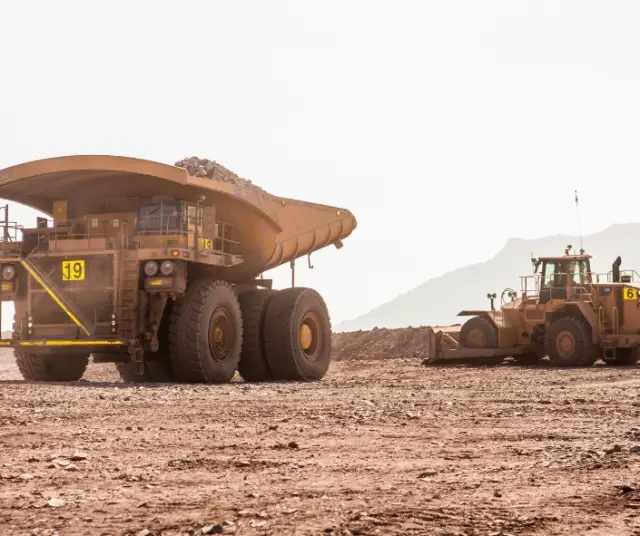Chile's mining industry has long been a fundamental pillar of its economy, playing a crucial role in the country's growth and development. With a long history dating back to pre-Columbian times, mining has been an integral part of Chilean national identity and has contributed significantly to the country's GDP. However, mining has also generated controversies in terms of environmental sustainability, indigenous rights and fair distribution of the wealth generated.
History of Mining in Chile
The history of mining in Chile is a fascinating story that dates back thousands of years, with evidence of mineral exploitation by pre-Columbian indigenous cultures. Since ancient times, indigenous peoples such as the Incas and the Mapuches took advantage of the mineral resources that the Chilean territory offered, using rudimentary but effective techniques for the extraction of precious metals such as gold and silver.
However, it was during Spanish colonization that mining acquired significant importance in Chile. The arrival of the European conquerors brought with it an intensification in the exploitation of silver mines, especially in places such as Copiapó and Chañarcillo, which became key centers of mining activity in the 19th century. This mining boom not only generated wealth for the Spanish crown, but also contributed to the economic and social development of the region, attracting thousands of fortune seekers from around the world.
The 19th century witnessed a series of mining discoveries that transformed the Chilean economy. The exploitation of silver mines was gradually replaced by copper mining, which became the main mining activity in the country. Beginning in the second half of the 19th century, Chile emerged as one of the world's leading producers of copper, a metal that would soon become the engine of its economy.
The most significant milestone in the modern history of Chilean mining occurred during the government of Salvador Allende in the 1970s, with the nationalization of the Great Copper Mining Company. This historic measure sought to regain state control over the country's natural resources and guarantee a more equitable distribution of the wealth generated by the mining industry. However, during the military dictatorship of Augusto Pinochet, privatization policies were implemented that opened the industry to foreign investment, leading to a significant increase in copper production and the growth of the mining sector.
The Economic Importance of Mining in Chile
Mining is undoubtedly one of the pillars of the Chilean economy. Chile is the world's leading producer of copper, with a significant share in global production. In addition to copper, the country also produces significant quantities of other minerals, such as lithium, molybdenum and gold, among others. This diversification in mining production has contributed to the stability and economic growth of the country.
The Chilean mining industry not only generates income through the export of minerals, but also drives other sectors of the economy, such as construction, manufacturing and services. Mining provides employment to thousands of people throughout the country, both directly and indirectly, and has been a key driver of poverty reduction and increased per capita income in Chile.
Environmental and Social Challenges
Despite the economic benefits it has brought, the mining industry in Chile faces a series of environmental and social challenges that require urgent attention. One of the most prominent problems is the environmental impact of open pit mining, which can result in soil degradation, water pollution and loss of biodiversity. Additionally, the mining industry's intensive use of water resources has raised concerns about water scarcity in regions where it operates.
Mining has also been the subject of criticism regarding its social impacts, especially in indigenous and rural communities. The lack of adequate consultation and respect for the rights of local communities has generated social conflicts and protests in various parts of the country. Calls for greater participation and benefits for affected communities are becoming more common and are leading to public debate about the need for a more equitable and sustainable approach to mining in Chile.
Advances in Sustainability and Corporate Social Responsibility
Despite the challenges, the Chilean mining industry has made progress in terms of sustainability and corporate social responsibility in recent years. Many mining companies have implemented environmental and social management programs to mitigate their negative impact on the environment and local communities. In addition, stricter environmental and labor regulations have been established to ensure that mining operations meet international standards.
The incorporation of cleaner and more efficient technologies in mining production processes has also contributed to reducing the environmental impact of the industry. Innovation in areas such as waste management, energy efficiency and water conservation is helping to make mining in Chile more sustainable in the long term.
As Chile moves towards a more sustainable future, mining will continue to play a crucial role in its economy. With constantly growing global demand for minerals, especially in the context of the transition to a low-carbon economy, Chile is well positioned to capitalize on these opportunities. The abundance of mineral resources, together with a stable regulatory framework and a skilled workforce, makes the country attractive for foreign investment in the mining sector.
However, to make the most of these opportunities, it is crucial to address remaining challenges in terms of sustainability and social equity. The inclusion of local communities in the decision-making process and the fair distribution of the benefits of mining are essential to ensure that economic growth is inclusive and sustainable in the long term.
Mining in Chile is a fundamental pillar of its economy, with a long history of contributing to the growth and development of the country. However, the industry faces significant challenges in terms of environmental sustainability and social equity, which require urgent attention. Through technological innovation, effective regulation and a commitment to best corporate social responsibility practices, Chile can continue to be a global leader in the mining industry, while ensuring a fairer and more sustainable future for its citizens and the environment. atmosphere.
